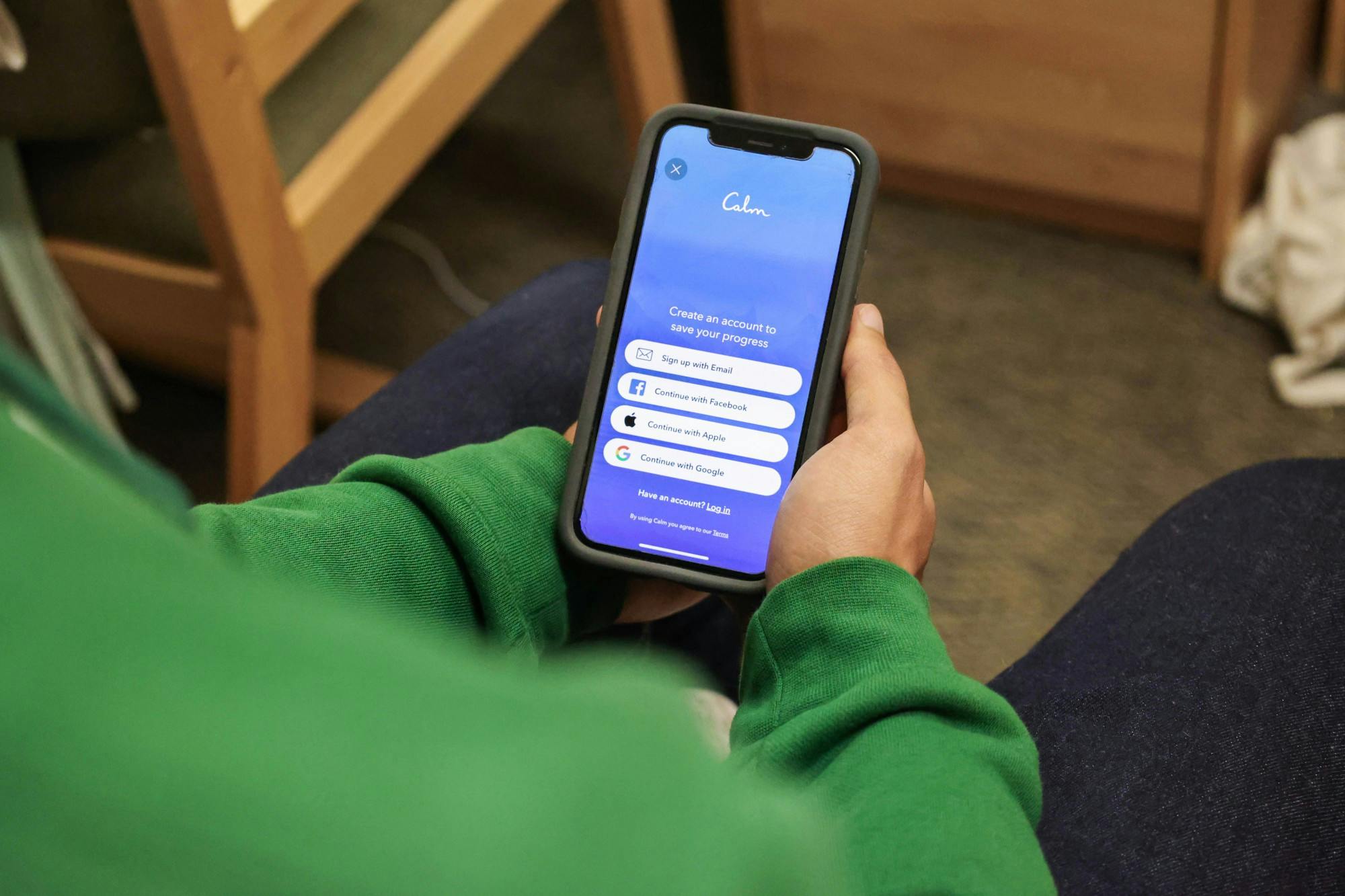On Oct. 5, Student Assembly’s mental health committee announced its Calm app pilot program in a campus-wide email. Beginning on Oct. 11, the pilot program gave 100 randomly-selected students a free one-year subscription to Calm, an app that, according to the email, helps users decrease anxiety and improve sleep through its guided meditations and music library. According to the application’s website, Calm’s resources are “evidence-based” and informed by “rigorous scientific research” that includes 12 research publications.
Mental Health Committee chair Jessica Chiriboga ’24 said the purpose of the Calm app pilot program is to help Dartmouth students improve their stress levels “more immediately” as long-term policy changes, such as increasing mental health counselors at Dick’s House and expanding the counseling 24-hour hotline to accommodate multiple callers, go into effect.
According to Chiriboga, the Calm pilot program also includes a partnership with the College, which grants the College access to the participants’ data analytics. The aggregated data includes participants’ listening history and periodic surveys designed to gauge the effectiveness of the app, Chiriboga said.
“We hope that whatever data and engagement numbers we get from this pilot project will give us evidence to present to the Dartmouth administration –– and then also to Student Assembly to fund more projects –– with the intention of having Calm be a free resource for every student, much like the New York Times and the Wall Street Journal subscription,” she said.
According to Chiriboga, the data will be anonymous, and the mental health committee will be the only people accessing the data in the form of the total numbers of users and total hours of engagement.
Chiriboga added that SA will also provide the data to the Student Wellness Center so that they may develop free resources that are similar to activities with the highest engagement on the app.
According to Chiriboga, as of Monday, 349 students had signed up for the program and 100 students were selected to receive the subscription.
TJ Parekh ’24, one of the students selected to participate, said he thinks the Calm app’s convenience will make the pilot program effective.
“[The program] is one of the most effective mental health initiatives, and it’s one of the few very concrete things I think Dartmouth has really done, which is a good sign,” he said, adding, “I think the only other thing that they can do is roll out the program to a more extensive level and provide it to every student.”
Chiriboga said that SA first developed the idea for the Calm app pilot program in January 2021, after Duke University offered a free Headspace subscription to all students. Johns Hopkins University and Notre Dame University also offer Calm app subscriptions to their undergraduates.
“We reached out to Calm to have a program with them because they are operating at a lot of big universities, and we wanted to sort of replicate that program and see how it could be implemented on Dartmouth’s campus,” she said.
Colin Donnelly ’24, one of the students who signed up for the program but was not chosen, said he liked the concept of the Calm app pilot program because it encourages students to allocate time for meditation and relaxation, even if only once a day.
“I’m in season right now for cross country, and I feel like I don’t give myself enough time for myself,” he said. “Having something like the Calm app to meditate, or just be, would be really good.”
Donnelly added that the rigor of being a Dartmouth student often takes a toll on mental health, which is why it's important for students to be proactive in decreasing their stress levels.
“I feel like a lot of Dartmouth students just get so caught up in what they’re doing –– classes, sports, social life –– just so many things that demand a lot of time, and I think having something to help you gather yourself [and] ground yourself is very important.”
Student Assembly has other mental health initiatives in the works, including looking into funding transportation to off-campus therapy and sun lamps in residence halls during the colder months, according to Chiriboga.
Chiriboga is a former member of The Dartmouth staff.
Kristin Chapman ’24 is an English major and Spanish minor from Rye, New York. She currently serves as the editor-in-chief and previously wrote and edited for the News section. In her free time, she enjoys reading books, running, hiking and doing yoga.




